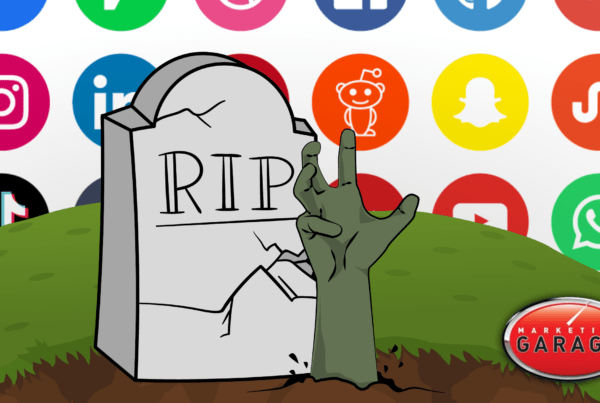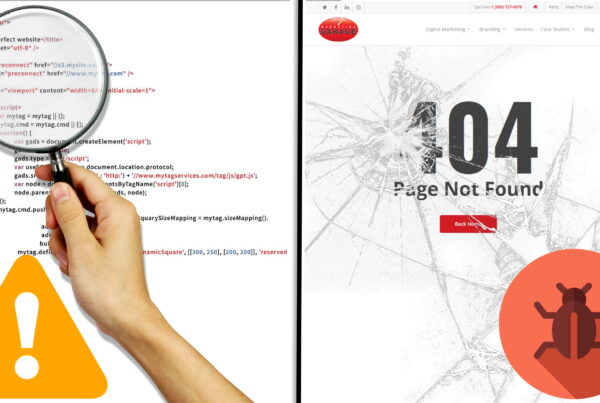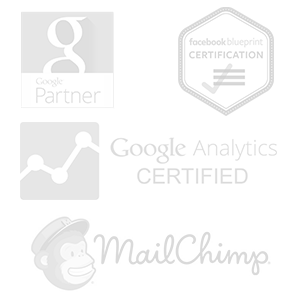
In this digital era, your business is probably already present on some form of social media. But, how do you know if it’s working? It’s one thing to set up your profiles and make a couple posts, but are you getting any value from it? This is where a social media audit comes in. Whether you’re auditing your own business or a new client, by conducting a social media audit you’ll be able to uncover any potential problems going unfixed right under your nose. You may also be able to identify other opportunities that could help you maximize your social media efforts. Below is my 8 point social media audit that you can use to give yourself a score out of 8 to see how you match up!
1. Are You Spending Your Time On The Right Social Platforms?
The first step in a social media audit is to identify which social platforms you are currently on. Once you have found all of your social profiles, you should then determine whether you are present on all relevant platforms. What I mean by this is that there is not one standard list of social platforms that each business should be on – it’s all relative. Most businesses opt into having a Facebook and LinkedIn profile, but beyond this, it all comes down to what will work for your business and what won’t. For example, a custom home building company should consider starting an Instagram account as all of their marketing is very visual – they want to show off their work! In comparison, a recruitment company would most likely not have a very good use for Instagram and instead focus on LinkedIn.
Another aspect you should consider is which social platforms your target audience is present on. Depending on what industry you’re in, there may be other sites out there that your audience would be on. Using the custom home builder example again, Homestars and Houzz would be examples of two other social platforms that you may benefit from having a presence on.
For an indication as to which social platforms would be valuable to your business, check your Google Analytics traffic sources. Within the Social channel, you can see all the specific social platforms that are generating site traffic – you may even find a site in that list you’ve never heard of!
2. Are All Of Your Social Profiles Optimized?
Now that you have your profiles set up on all relevant platforms, the next step is to make sure they’re optimized. Below, I’ve created a handy little checklist you can use to quickly evaluate whether your profile is fully optimized:
- Is the business name optimized and spelled correctly? E.g. Fred & Partners Plumbing (you would be shocked to see how many profiles I’ve come across that have spelling mistakes in the business name!)
- Is the description keyword-optimized?
- Is the description compelling?
- Is the profile picture an optimized logo? Is it cut off or blurry?
- Is the business categorized for the biggest keyword?
- Is the banner compelling? Is it graphically flawless with a compelling set of words?
- Is the contact information accurate? This is actually a very important thing to make sure you have correct. When your Name, Address, and Phone Number (or NAP for short) all match across all your profiles online, you are more likely to rank higher in organic search results.
- Are there links to other social networks?
- Is there an easy call-to-action?
- Do they show up in Google Maps results? If so, where?
- Is the locations tab in Facebook activated for multi-location retailers?
3. Do You Have A Decent Following?
In all honesty, there really is no concrete way to determine if you have a decent following or not. The best way to find out is to compare yourself to the competition. Below is a quick little example of how you would compare your following if you were a car manufacturer:

When trying to build followers for your page, it’s best to do so organically. Buying followers is not as important as it once was about 5-10 years ago as this practice is actually counterproductive. Although buying followers does increase your follower count and post reach, these followers are way less likely to engage with your content. Social networks nowadays value engagements and engagement rates much higher than number of followers and post reach and are more likely to show your content when it has higher engagement. Also, by building your followers organically, your content will be reaching people who actually care about your brand and who are more likely to convert.
4. Are You Posting Different Types Of Content 2-3 Times A Week?
The next thing you should check is how often you are posting on your socials. As a digital marketing agency, we recommend to our clients that they post around 2-3 times a week and focus on quality over quantity. This is because Facebook is more likely to serve up content that gets engaged with versus content with low engagement.
Another thing to watch for is the variety of posts. It’s best to mix it up a little – include videos, images, gifs, etc to keep your audience interested. Next, make sure that your content is creating value. Is it all promotional or is it a mix including educational & entertaining content?
5. Are You Getting An Engagement Rate Of 2-3%?
So now that you know you’re posting often enough, you should then determine if your posts are compelling enough. Before posting, ask yourself, “would I share this with a friend?” If the post isn’t interesting to you, it’s pretty safe to say that it won’t be engaging to others.
The best way to see if you have a good amount of engagements on your posts is to calculate your engagement rate. Take the number of people engaging weekly and divide it by total fans. Most digital marketing agencies recommend aiming for around 2-3%.
6. Are You Boosting Content?
Basically, are you putting money behind some of your posts? By doing so, you are able to reach relevant people outside of your network. Even boosting a post by $5 can significantly increase your reach, engagement, and even followers. On Facebook specifically, boosting posts has become even more important. Facebook has really become a pay-to-play platform and organic reach for company posts has significantly declined. In fact, the average reach of an unboosted post has declined to <1% due to changes in the Facebook algorithm.
7. Are You Actively Engaged In The Conversation?
When you’re active on social media, something you should be doing is going back to posts (within a reasonable time frame of course) and answering any questions or comments people may be leaving, and even throwing a like to good comments. Being active on social media increases brand credibility and enhances customer relationships. In fact, 71% of customers who have had a pleasant experience with brands on social media platforms recommend the brand to their loved ones.
8. Are You Getting Reviews?
Make sure you check all relevant review sites (Google, Facebook, Yelp, etc) and see if you are actually getting any reviews and how you compare to the competition. Not only should you determine if you are getting reviews, but you should make sure you’re getting good reviews. Most marketing companies suggest a good number to aim for is a 4+.
As a Toronto marketing company, we see reviews as being highly important due to the high saturation of the market here. This is because reviews actually influence up to 10% of the ranking on local searches. Basically, if you have more reviews than your competition, that could be the one factor that boosts your business’s organic search ranking over the others.
For more information on how important business reviews are, check out our blog 3 Reasons Why Online Reviews Are Important For Your Business.
How else can Digital Marketing help you?
Learn MoreAre you ready to have a conversation?
Talk To UsMore Advice From a Toronto Marketing Company






One Comment